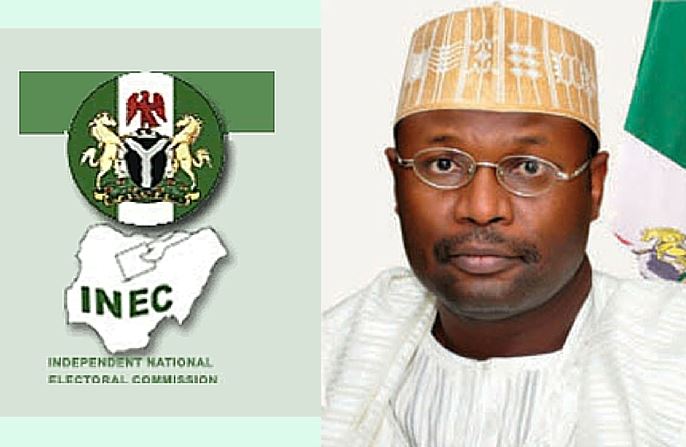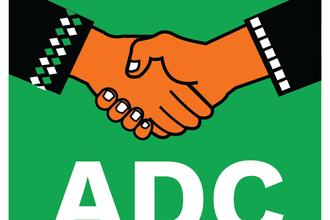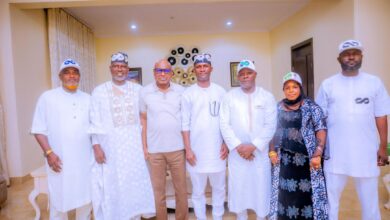Democracy Under Siege: Demand Immediate Electoral Reform, Accountability

The extremely concerning situation of Nigeria’s democratic process was highlighted in a recent must-watch Arise News TV broadcast with Nigerian human rights attorney Martin Obono.
The TAP Initiative for Citizens Development’s Executive Director, Obono, presented the results of his organization’s study into what appeared to be electoral fraud in the most recent Edo State gubernatorial election, revealing a system beset by anomalies and systemic misconduct.
Both Nigerian citizens and foreign stakeholders should take note of this disturbing exposé, which emphasizes the urgent need to reform the nation’s election system in order to preserve democratic integrity.
The Independent National Electoral Commission (INEC), Nigeria’s electoral body, is accused of collusively manipulating voters by printing duplicate result sheets that favored specific outcomes, which we now know were heavily skewed in favor of the All Progressives Congress (APC). This scandalous accusation lies at the heart of TAP’s findings.
Obono claims that TAP’s examination of the election results revealed differences between what INEC finally announced and what operatives on the ground documented.
According to TAP, INEC used phony Certified True Copies (CTCs) of results sheets that were startlingly different from the data from the Independent Results Viewing (IREV) platform and did not have polling agent signatures.
In addition to casting doubt on INEC’s legitimacy, these extremely alarming disclosures point to a larger pattern of institutional and political collusion in undermining the democratic will.
These findings have far-reaching consequences outside of Edo State. Obono cautioned that if these practices continue unchecked, they may act as a risky model for upcoming elections, eroding Nigerians’ already shaky confidence in their democratic system.
Nigeria has struggled with vote-buying, voter suppression, and election violence for decades, but the scope and complexity of the alleged fraud in Edo State point to a concerning change.
TAP’s investigation revealed that a new type of institutional manipulation made classic election malpractice—ballot box snatching, vote-buying, and voter intimidation—even worse, casting serious doubt on INEC’s ability to serve as an impartial enabler of democracy.
Read Also: N4.4billion worth cocaine seized at Lagos airport as NDLEA grills 30 suspects
The alleged wrongdoings by INEC reveal a lack of accountability not only inside the commission but also between the judicial system and political parties. According to TAP’s investigations, security forces, opposition parties, and party operatives all seemed to be either participating in or indifferent to the wrongdoing. This suggests that impunity is a widespread culture. Obono emphasized that the cycle of corruption and rigged elections will continue if electoral offenders are not brought to justice, depriving Nigerians of their right to pick their leaders.
In addition to TAP’s conclusions, it is crucial to draw attention to the recently amended Electoral Act of 2022, which included measures like the IREV platform to encourage openness. Although the goal of this law was to stop malpractice, it has now been shown to have limits. These measures are insufficient in the absence of a strong enforcement mechanism and INEC’s accountable openness. Transferring the burden of proof to INEC, as suggested by TAP, is an essential step. Since electoral malpractice is systematic, it is now difficult and frequently impossible for candidates to prove they lost an election because of fraud. Restoring public confidence may be achieved by requiring INEC to prove the integrity of its procedures.
TAP’s results also highlight the necessity of forensic auditing of electoral records, using third-party organizations to confirm the documents’ authenticity.
By preventing institutional rigging, such inspection could establish a standard for accountability in elections to come.
Nigerian civic society and international watchdogs must work together to set up systems for keeping an eye on INEC’s actions and guaranteeing election openness.
In order to examine INEC’s adherence to electoral laws, this partnership should include both independent monitoring and forensic audits.
Comprehensive electoral reform is desperately needed, as demonstrated by the recent Edo State elections. Without accountability and openness, Nigerian democracy faces a dangerous future. Nigerians are entitled to a system that gives them the freedom and fairness to select their leaders.
Election integrity is a right guaranteed by democratic governance, not a privilege. Time is of the essence, and the stakes are enormous. It is now the responsibility of civil society to hold INEC accountable and to change it.
The results of the TAP Initiative ought to serve as a strong push for reform, requiring INEC to make structural and procedural adjustments in order to stop future wrongdoing.
In order to establish election legitimacy, INEC must first bear the burden of evidence. Second, regular forensic auditing of electoral data must be required by law, with sanctions for violations.
In order to guarantee that the platform serves as a real-time, verifiable record of votes, INEC’s funding and training for transparency technologies like IREV must be improved.
The future of democracy in Nigeria is at stake. In order to create a society where the power of the ballot box is respected and the public will is untarnished by institutional malfeasance, the government and INEC must take advantage of this opportunity to implement revolutionary reforms. Nigeria will only be able to realize the democratic values it has long sought.




